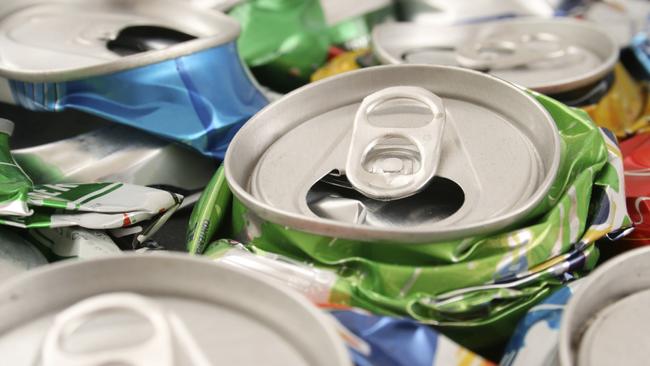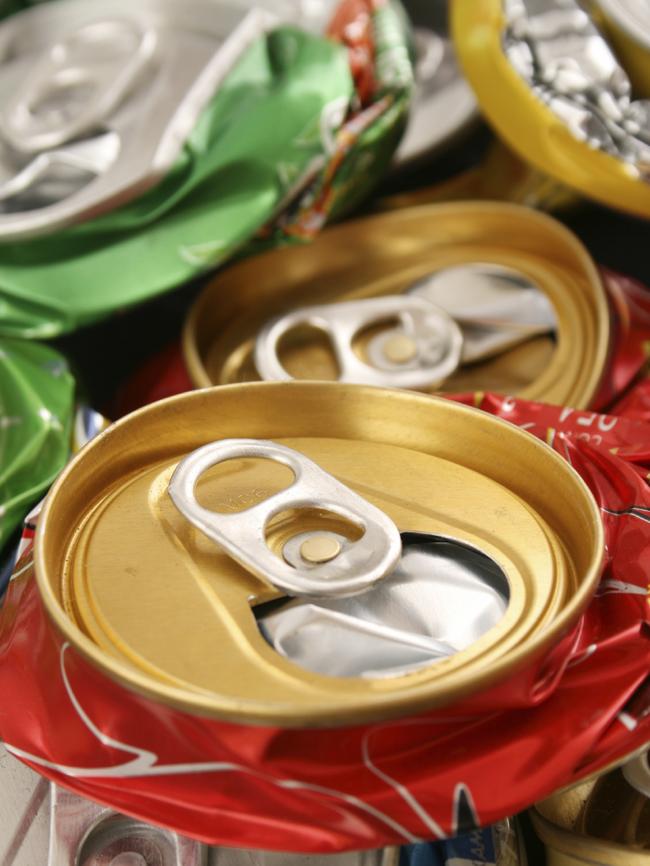‘Cash for cans’ scheme gets green light — but cost of beer, soft drink set to rise
A “CASH-for-can” scheme will be introduced in NSW with anyone returning an eligible bottle, can or container earning 10c for the effort.

News
Don't miss out on the headlines from News. Followed categories will be added to My News.
WE will finally pop the top on a “cash-for-cans” scheme from July next year, with anyone returning an empty bottle of beer, water or soft drink earning 10c.
However, the price of these drinks will rise, probably by at least the same amount, as the state government forces the beverage industry to cover the cost of the scheme.
Large-scale collection depots, special reverse-vending machines and pop-up sites will be established across NSW, where drink containers carrying “CDS” — Container Deposit Scheme — labels will be able to be returned.
Declaring it the single biggest plan to reduce litter, the Baird government will today unveil the details of the long-awaited proposal it pledged to introduce at the last election.
Beverage suppliers must cover the administration and refund costs but the government will leave it up to the industry as to how much is passed on to consumers.
Containers can still be recycled through the regular kerbside system, but the 10c refund will instead be claimed by recyclers or councils.
It comes despite intense lobbying by the beverage industry against the scheme.
The four biggest manufacturers — Coca-Cola Amatil, Carlton and United Breweries, Lion Nathan and Schweppes — had argued the cost of running the scheme was so high it would be forced to add 20c to the price of drinks.

However, the government claims people overwhelmingly want the scheme, with 90 per cent of more than 11,700 submissions lodged during the consultation in favour.
Drinks that are mostly consumed at home, such as wine, milk, pure juice and some health tonics, will be excluded.
Premier Mike Baird said the scheme would help cut down the millions of drink containers ending up as litter.
“The scheme is the single largest initiative ever undertaken to reduce litter in NSW,” he said. “(It) will help to significantly reduce the estimated 160 million drink containers littered every year.”
The government anticipates volunteer and sporting groups will embrace the scheme as a way to raise much-needed funds.
In South Australia, where a similar scheme has been running since the 1970s, charities and community groups received more than $60 million last year.
The scheme was flagged at the last election, with the Liberals pledging to have one in operation in 2017 while also reducing rubbish by 40 per cent by 2020.
Environment Minister Mark Speakman said a container deposit scheme was the only way to meet the 40 per cent target.



